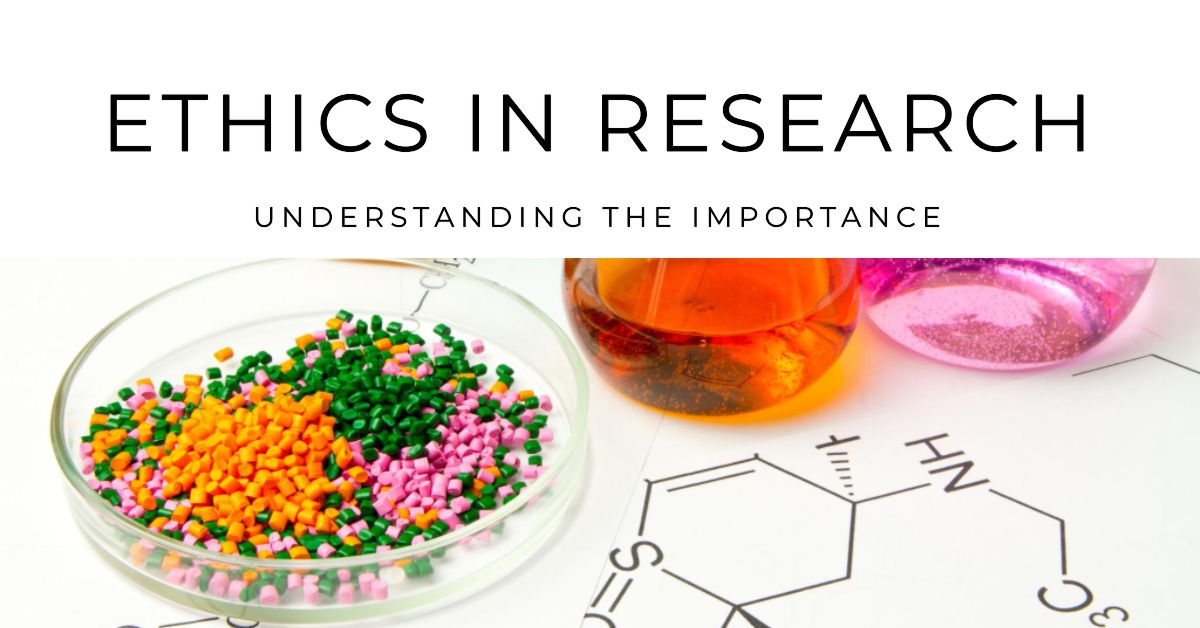Research integrity refers to the adherence to ethical principles and professional standards in conducting and reporting research. It encompasses the responsible and honest conduct of research, ensuring the reliability, accuracy, and transparency of the research process and its outcomes. Research integrity involves a commitment to upholding ethical standards, maintaining the highest level of scientific rigor, and promoting the well-being and trust of the research community and society at large.
Promoting research integrity requires the collective efforts of researchers, institutions, publishers, and the wider scientific community. By embracing practices that prioritize ethical conduct, transparency, and accountability, we can create a culture that upholds the highest standards of research integrity. Here we will explore various strategies and actions to promote research integrity, empowering researchers to engage in responsible and ethical scientific practices.
Honesty and transparency
Honesty and transparency play a vital role in upholding the highest ethical standards and ensuring the reliability and credibility of scientific research. Obviously, researchers have a responsibility to accurately represent their research methods, data, findings, and interpretations. Honesty in reporting includes providing a true and comprehensive account of the research process, acknowledging limitations, and not manipulating or fabricating data or results. Transparent reporting helps to build trust among peers and the wider scientific community.
Honesty and transparency are essential for establishing trust in the scientific community and the general public. Researchers who demonstrate a commitment to truthfulness and transparency are more likely to gain credibility and foster collaboration. Transparent practices allow others to replicate and verify research findings, contributing to the robustness of scientific knowledge.
Besides, transparency encourages researchers to openly share their research processes, methods, and data. Openness facilitates scrutiny and encourages constructive feedback, ultimately enhancing the quality and rigor of research. Sharing research protocols, data, and materials helps to promote transparency, reproducibility, and accountability in scientific investigations.
In addition, honesty and transparency are vital during the peer review process and in managing conflicts of interest. In cases where errors, misconduct, or ethical breaches are discovered, honesty and transparency are crucial in addressing the situation.
Ethical conduct
Ethics encompasses the adherence to ethical principles, values, and guidelines in all stages of the research process. It involves conducting research in a manner that respects the rights and well-being of participants, maintains scientific integrity, and upholds societal and professional expectations.
Ethical conduct requires obtaining informed consent from human participants, ensuring their voluntary participation, protecting their privacy and confidentiality, and minimizing any potential harm or risks. Researchers should avoid data manipulation, fabrication, or selective reporting of results. Transparent documentation and adherence to research protocols are essential for maintaining integrity throughout the research process.
As a rule, ethical conduct involves responsible authorship practices, ensuring that all individuals who have made significant contributions are appropriately credited as authors while excluding those who have not actively contributed. Researchers should adhere to guidelines on authorship criteria, avoiding honorary authorship or ghost authorship, and accurately representing their contributions.
Ethical guidelines require researchers to respect intellectual property rights, acknowledge the work of others, and avoid plagiarism. They should appropriately cite and reference the sources they have used, giving due credit to the original authors.

Objectivity and impartiality
Objectivity and impartiality require researchers to minimize personal, cultural, or institutional biases that could influence the research process or the interpretation of results. Researchers should approach their research with an open mind, critically evaluate evidence, and consider alternative perspectives to mitigate potential biases.
These features are reflected in the design of the study itself. Researchers should strive to design their studies in a way that minimizes bias and allows for a fair assessment of the research question. This includes considerations such as randomization, blinding, controlling confounding variables, and selecting appropriate comparison groups.
Also, objectivity and impartiality extend to data collection and analysis. Researchers should collect data in an unbiased manner, adhering to standardized protocols and minimizing any potential influence on the outcomes. Evaluation of research findings and interpreting results should avoid personal or vested interests. Researchers should objectively assess the strengths, limitations, and implications of their findings, presenting a balanced perspective. Acknowledging uncertainties and potential alternative explanations contributes to the integrity of the research process.
Objectivity and impartiality are essential in the peer review process, where independent experts evaluate the quality and validity of research manuscripts. Peer reviewers should approach their role with objectivity, providing constructive feedback and unbiased assessments of the research. Maintaining confidentiality and avoiding conflicts of interest are crucial for impartial peer review.

Rigorous methodology
Rigorous methodology makes scientific investigations precisive, accurate, and ensures adherence to established standards. Rigorous methodology enhances the reliability, validity, and credibility of research findings.
Researchers must select an appropriate study design that aligns with the research question and objectives. Common study designs include experimental, observational, cross-sectional, longitudinal, or qualitative designs. The chosen design should minimize bias, maximize internal validity, and provide reliable and valid results.
Effective methodology involves determining an appropriate sample size to ensure statistical power and representativeness. Researchers should use proper sampling methods to minimize selection bias and ensure that the sample accurately represents the target population. Rigorous methodology requires careful planning and execution of data collection procedures. Researchers should develop standardized protocols, measurement tools, and data collection instruments.
Besides, rigorous methodology involves applying appropriate statistical methods for data analysis. Researchers should select statistical tests that are relevant to the research question and data type, ensuring that the chosen methods are valid and reliable.
We are sure that effective research methods support reproducibility and transparency. Researchers should provide detailed descriptions of their methods, data collection procedures, and analytical techniques, allowing others to replicate the study. Sharing data, code, and materials facilitates transparency and fosters the reproducibility of research findings.
In addition, rigorous methodology benefits from independent peer review when the quality, validity, and rigor of the methodology are assessed. Feedback from peer reviewers helps identify methodological weaknesses or areas for improvement.
Responsible authorship and publication
Responsible authorship involves giving due credit to those who have made significant contributions to the research, while responsible publication entails reporting research findings in a manner that is honest, accurate, and aligned with ethical guidelines.
Responsible authorship involves acknowledging the contributions of individuals who have made substantial but non-authorship contributions to the research, such as providing technical support, data collection assistance, or critical feedback. Acknowledgments ensure that individuals receive appropriate recognition for their contributions. Responsible authorship prohibits ghost authorship and honorary authorship. All authors should actively contribute to the research and take responsibility for its content.
Responsible publication involves reporting research findings honestly, accurately, and transparently. Researchers should ensure that publications are free from fabrication, falsification, plagiarism, or any other form of misconduct. Responsible publication also entails obtaining the necessary permissions and complying with copyright and intellectual property rights.
Also, such publication requires transparent reporting of the research methodology, data, results, and interpretations and, of course, entails complying with the guidelines and policies set by journals or publishers. Researchers should review and follow the publication guidelines related to formatting, ethical considerations, data sharing, and conflict of interest disclosure. Adhering to publication guidelines ensures the integrity and quality of the published research.
Data management and reproducibility
Effective data management is essential for maintaining the integrity of research. Researchers must accurately collect, record, store, and preserve research data to prevent data loss, corruption, or manipulation. Proper documentation of data ensures that it is reliable and can be used to support research findings.
Researchers have a responsibility to protect the security and confidentiality of research data, particularly when dealing with sensitive information or personally identifiable data. Implementing appropriate data security measures, including secure storage, encryption, and access controls, helps safeguard the privacy and confidentiality of research participants.
By sharing data, methodologies, and analysis procedures, researchers enable others to replicate their research and verify the accuracy and reliability of the findings. Reproducible research ensures transparency and fosters trust within the scientific community.
Data sharing is essential for research integrity as it allows others to evaluate, validate, and build upon research findings. By making research data openly available, researchers contribute to the broader scientific knowledge base and facilitate collaboration and independent verification of results.
Proper data management and reproducibility enhance research transparency. Researchers should provide clear and detailed documentation of the research methods, protocols, and data analysis techniques employed. Transparent reporting enables others to understand and evaluate the research process and facilitates the replication and validation of results.
Peer review
Peer review serves as a critical quality assurance mechanism in the research process. It involves independent evaluation of research manuscripts by experts in the field who assess the scientific rigor, validity, and ethical considerations of the study. Peer review helps identify potential errors, biases, or methodological weaknesses, ensuring that only high-quality research is published.
Peer review plays a crucial role in evaluating the integrity of research. Reviewers assess the ethical standards, research design, data collection and analysis methods, and accurate interpretation of results. This evaluation helps ensure that research is conducted ethically and with scientific rigor.
Peer review provides constructive feedback to authors, helping them improve the quality and clarity of their research. Also, it serves as a verification process for research findings. Reviewers assess the reliability and validity of the data, methodology, and results, ensuring that the research is well-supported and scientifically sound.
Engagement in peer review provides opportunities for researchers to learn from their peers, gain new insights, and stay updated on advancements in their field. Continuous learning and improvement contribute to research integrity by promoting the adoption of best practices, embracing new methodologies, and integrating ethical considerations into research.
Responsible mentorship and training
Responsible mentors serve as ethical role models, demonstrating integrity in their own research practices. They uphold ethical standards, transparency, and accountability, providing an example for mentees to follow. Responsible mentors provide guidance and education on research ethics, including ethical considerations, regulations, and guidelines relevant to the research field. They help mentees navigate ethical challenges and dilemmas, ensuring that research is conducted with integrity and adherence to ethical principles.
Responsible mentorship is important to establish responsible conduct in research. Its values such as honesty, transparency, objectivity, and respect for participants’ rights foster a research environment where ethical behavior is encouraged and expected.
Responsible mentors promote collaboration and collegiality among researchers. They encourage open and respectful communication, collaboration across disciplines, and the sharing of ideas and resources. Collaborative research promotes integrity, accountability, and a collective commitment to research excellence.
Moreover, responsible mentors address research misconduct promptly and appropriately. They educate mentees about the consequences of research misconduct, the importance of responsible conduct, and the reporting mechanisms for suspected misconduct. They provide guidance on ethical procedures for addressing allegations or concerns related to research integrity.
Thus, promoting research integrity ensures that research outcomes are reliable, trustworthy, and contribute to the advancement of knowledge. It safeguards the reputation of individual researchers, institutions, and the scientific community as a whole, fostering public trust and confidence in research findings.

